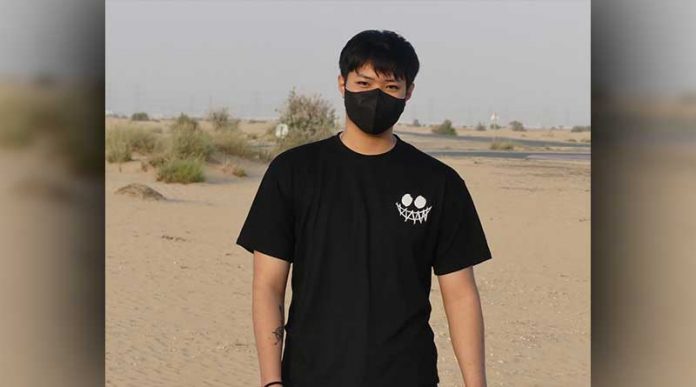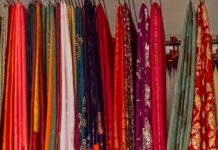Learning about South Korean society only through its entertainment can have orientalist repercussions
By Sara Hameed
SHARJAH – “You’re not like other Koreans.”
Jaewoong Lee, Mass Communication student at the American University of Sharjah, was in 12th grade when a peer said this to him.
Being the only Korean in his school, he was baffled as he asked if she knew anyone else who behaved in a certain way; to which she insisted on the way Korean men in their dramas are portrayed. What she expected, was for him to act the way they do.
He reveals encounters like these are “really common,” and even shares that when he first came to the United Arab Emirates, people often confused him for a K-Pop idol trainee.
“Because I’m a Korean who dyes my hair,” he reasons.
Culture: an ever-changing concept
Not considering K-Pop as part of Korean culture is a rather rigid viewpoint. For South Korean culture, it is a complex, fluid phenomenon.
This is something Interim Head of the International Studies Department and Sociology Professor Dr. Yuting Wang, carefully explains.
According to her, Korean policymakers are aware of the challenges they face when promoting popular culture, especially since its repertoire is “very sensitive.”
South Koreans indeed draw on a heritage that is absent in K-Pop, which gives outsiders the impression they have “lost their culture,” or that foreign companies marketing K-Pop misrepresent it.
Dr. Wang objects to this by stating South Korean culture changes constantly. In fact, after 2007, the South Korean Ministry of Culture, Sports and Tourism replaced the term “culture” with “creative content,” to describe the industry they are currently engaged in.
From her perspective, they would not want to be caught in a debate of what kind of culture South Korean society should follow.
“We cannot easily say whether it’s misrepresented Korean culture, because K-Pop is a part of South Korean culture now.”
One cannot take it out, as it was developed with a strong strategic mission behind it.
Eastern stereotypes and the Western fantasy
While Korean media represents Korean values, today, they are being reconstituted.
Dr. Wang says gendered images are powerful, in which girls are always “innocent and sweet” and “listen to more powerful figures.”
Men, in the same way, have offered an alternative masculinity to this “very macho type” of masculine image that is more prevalent in the West. There is the young East Asian flower boy, who is “very delicate,” but still “quite manly” and able to provide for his family.
Traditional understandings of men and women, and how their images are presented towards the broader society are ultimately challenged.
“It’s really fulfilled the fantasy of the Western world towards the East,” Dr. Wang adds.
Lee himself believes Korean media pushes for them to have these stereotypes. After all, based on his experience, most fans of the country’s dramas have a romanticized view of Korean attitudes.
“If you’re watching a Marvel movie, or from Hollywood or Britain, they don’t expect them to act like that,” he stresses.
Another aspect of Korean media that has caught the attention of the West, is its emphasis on collectivity.
The harsh training K-Pop idols go through, only to be a part of large groups that are almost synchronized is absent in the Western part of the world.
Furthermore, based on Dr. Wang’s own reflections, she believes that finding a beauty and meaning in K-Pop lyrics, even if one cannot understand them, is a type of orientalism: the “exotic” East has been reinvented in a format that is “easily acceptable and appealing” to Western eyes.
She also discusses how images are constructed. For instance, if one is only familiar with BTS, they would have a very limited understanding of East Asian society. The entertainment industry is only one part, and its actors are in the spotlight.
It can be said the complexity of this society is simplified through projected images towards Western audiences.
Dr. Wang continues they might develop an idea that South Korea is free of social problems, or that democratic polities have no issues whatsoever.
Meanwhile, a communist country like China is always associated with negative images. This is a popular belief Western viewers have.
On a more positive note, however, the Korean entertainment industry helps break down stereotypes to show that East Asia is full of creativity.
Dr. Wang highlights there is ample original content that is being created, and “this kind of creativity is welcomed.” It breaks stereotypes of East Asia being a more conservative, traditional society where censorship is strong.
“These stereotypes are so intricate. It is sometimes hard to keep them apart from each other,” she concludes.
Being mindful in the long run
“Focusing on creativity instead of looking at this as something in a cultural realm, would probably break boundaries in the future.”
In Dr. Wang’s opinion, it is not right to associate this kind of entertainment with one region, as it is a very global phenomenon; and it is its global nature that would help it break free of stereotypes.
Moreover, Lee wants international audiences to learn about South Korea and visit it for themselves. Conducting proper research and understanding that it is more than just K-Pop and entertainment would help them better appreciate its society.
Ewha Kim, marketing and public relations manager at the Korean Cultural Center in the UAE, writes in an e-mail exchange of how cultural centres are important because understanding one another’s culture is a “ground stone” for building a strong relationship between two countries.
Cultural centers organize language and cultural courses, contemporary and traditional exhibitions, and even communicate with universities and government entities to promote the country’s culture.
“K-Pop and K-Dramas are being loved […] worldwide…,” Kim acknowledges.
“However, we want the people to experience our rich and valuable traditions as well.”


















